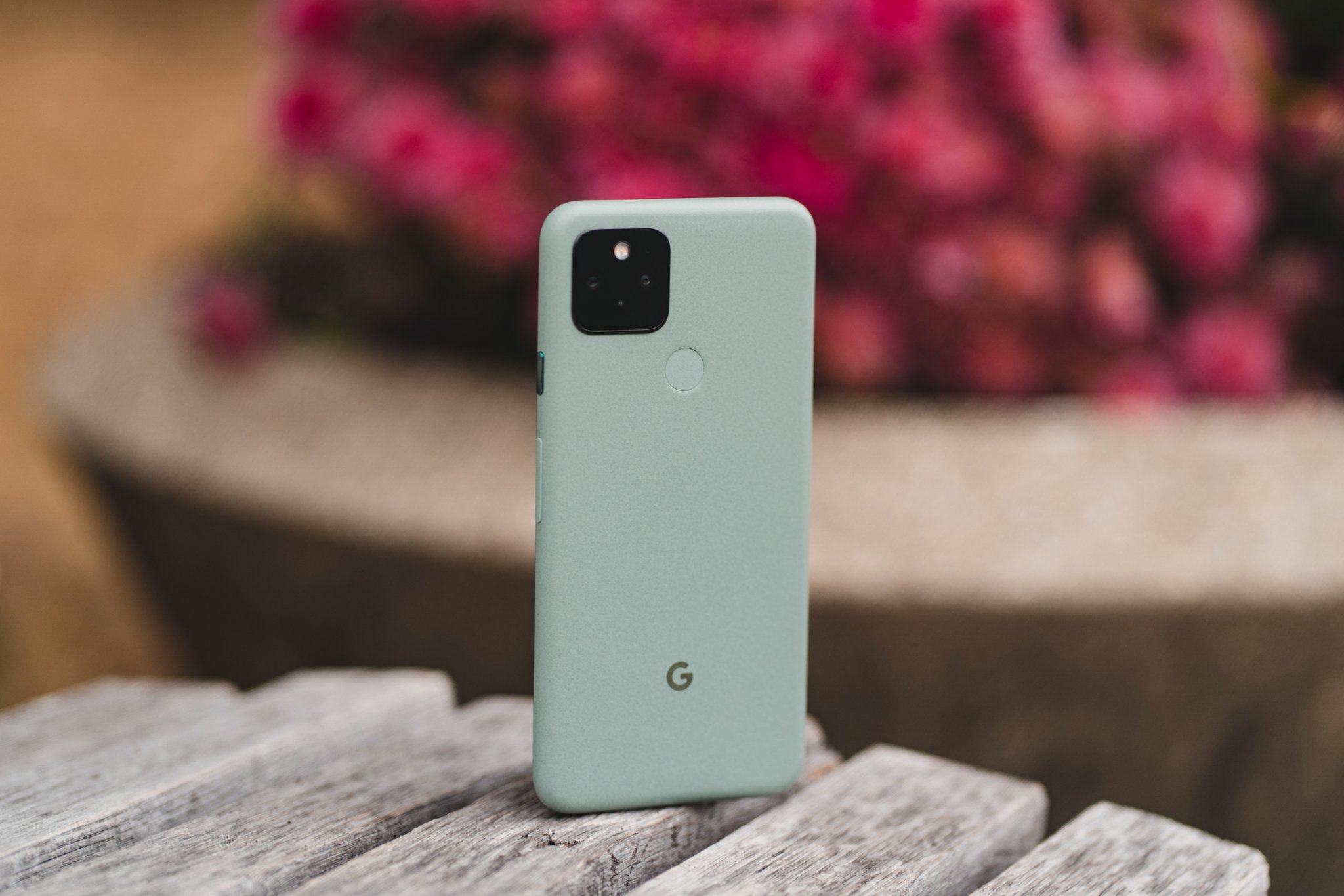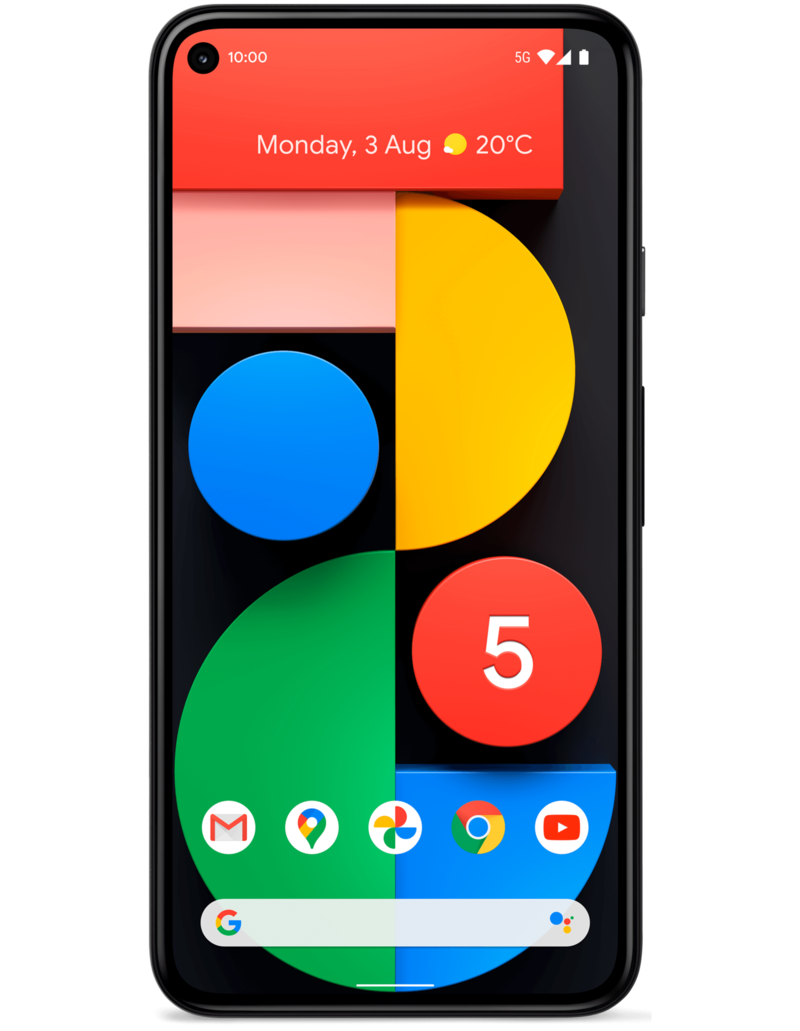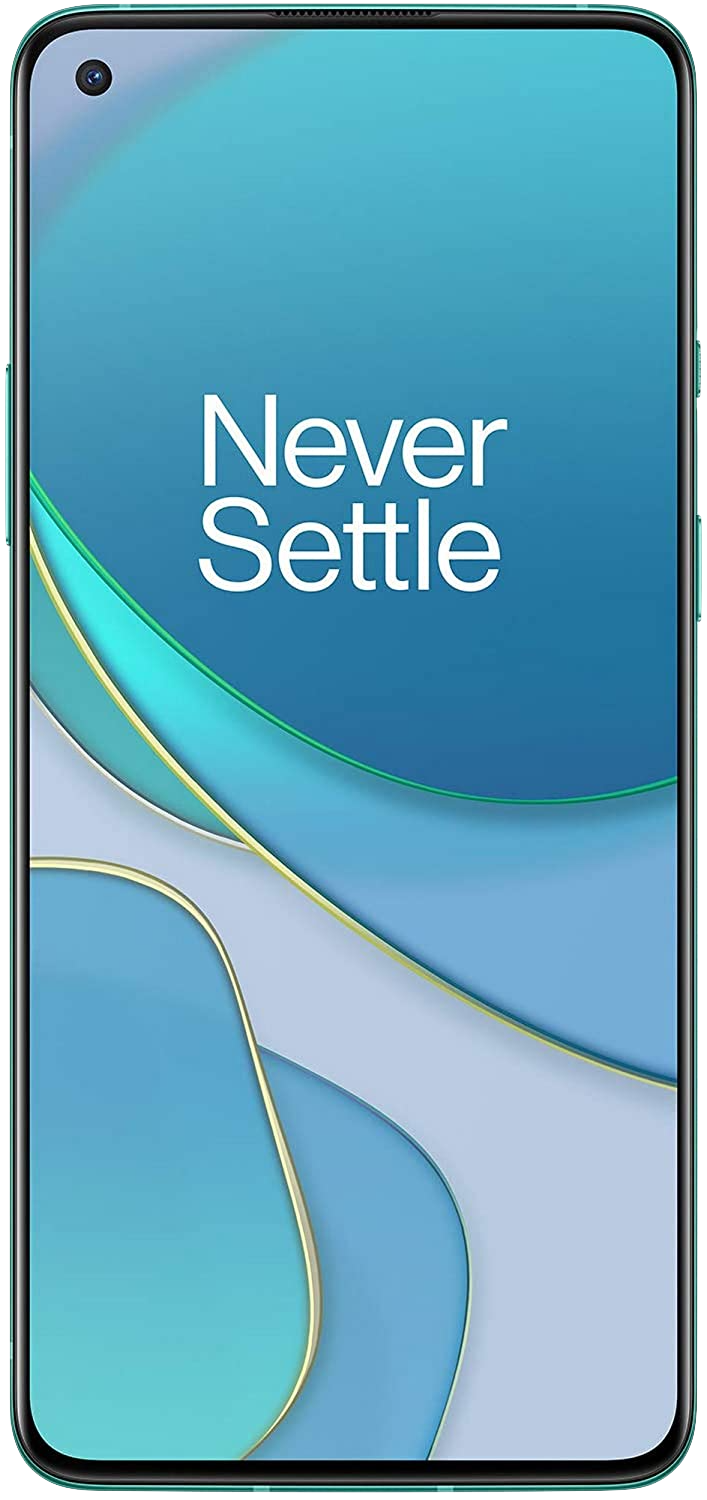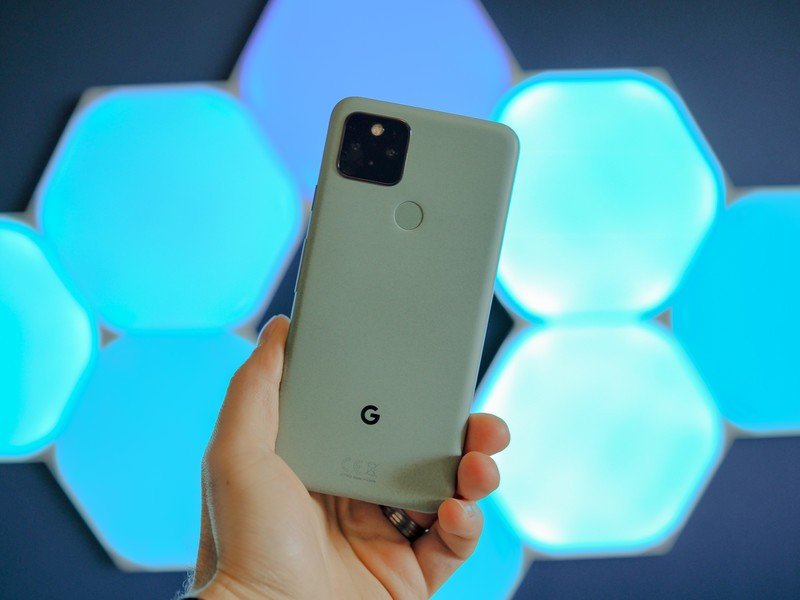Google Pixel 5 vs. OnePlus 8T: Which should you buy?

Google Pixel 5

The Pixel 5 continues Google's camera dominance in the flagship category. The phone has 5G connectivity, a 90Hz OLED panel, IP68 water resistance and 15W wireless charging, and an ultra-wide camera at the back — a first for Google. It runs Android 11 out of the box and will get three guaranteed Android version updates, making it a standout choice.
Google Pixel 5
Reasons to buy
Reasons to avoid
OnePlus 8T

The OnePlus 8T is a standout phone thanks to a 120Hz AMOLED panel and the latest internal hardware in the form of a Snapdragon 865 chipset. It is also the first OnePlus phone to offer 65W fast charging, and runs Android 11 out of the box. Combine that with clean software and fast updates and you get a great overall option.
OnePlus 8T
Reasons to buy
Reasons to avoid
Both Google and OnePlus are doing things a little differently this year. Google, for its part, is focusing on its core strengths — the camera — and making necessary changes in other areas to bring the cost down to $699. OnePlus, meanwhile, is launching just the OnePlus 8T, with no 8T Pro on offer this generation. Both phones have plenty to offer, so let's take a look at how they differ and which device is better suited for your needs.
Google Pixel 5 vs. OnePlus 8T: Two very different ways to make a flagship
There's a fundamental difference in the way Google and OnePlus build their flagships. With the Pixel 5, Google is eschewing Qualcomm's flagship chipset in favor of the Snapdragon 765G to lower the cost, but is still touting flagship-tier performance. Google hasn't been one to offer enticing specs anyway — the Pixel 3 was limited to 4GB of RAM — but it instead focuses on offering the best overall experience.
The Pixel 5 misses out on the Snapdragon 865, but it has plenty of other features to offer.
That's the defining characteristic of the Pixel 5. Sure, it won't pass muster purely from a specs point of view, but there's more to the story. The Snapdragon 765G is just as capable as the Snapdragon 865 in day-to-day usage, and it comes with 5G connectivity. The Pixel 5, in fact, has both Sub-6 and mmWave bands in the U.S., making it future-proof in that regard.
The OnePlus 8T, meanwhile, is all about delivering the best specs available in the market. The phone is powered by the Snapdragon 865 chipset, and OnePlus is debuting 65W fast charging. OnePlus is closing the gap to the OnePlus 8 Pro with the 8T, and the phone is available for $749 in the U.S.
The Pixel 5 has a 6.0-inch OLED display with a 90Hz refresh rate, while the OnePlus 8T has a larger 6.5-inch 120Hz AMOLED screen. Both phones are limited to FHD+ resolution, and while there isn't too much of a difference between 90Hz and 120Hz in most real-world use cases, the larger screen on the OnePlus 8T makes it more conducive for streaming content and playing games.
Be an expert in 5 minutes
Get the latest news from Android Central, your trusted companion in the world of Android

The Pixel 5 is powered by the Snapdragon 765G chipset and has Sub-6 and mmWave 5G connectivity in the U.S. Sure, it's not as powerful as the Snapdragon 865 on the OnePlus 8T, but the difference is barely noticeable for most day-to-day tasks. Then there's the fact that the Pixel 5 has IP68 water resistance as standard and 15W wireless charging as well as 5W reverse wireless charging.
The OnePlus 8 missed out on wireless charging and water resistance (only carrier models had IP68), and the OnePlus 8T doesn't get the feature as well. OnePlus is instead positioning 65W wired charging as the differentiator for the device, with the fast charging standard able to fully charge the 8T's 4500mAh battery in just 39 minutes. The Pixel 5, meanwhile, has 18W wired charging and a 4080mAh battery.
Google dominates on the camera front — and that hasn't changed with the Pixel 5.
Then there's the camera equation. The Pixel 5 is the runaway winner when it comes to camera quality — OnePlus has made decent gains, but it still has a long way to go before it is on the same level as Google.
The Pixel retains the same 12.2MP primary camera as its predecessors, but it includes a secondary 16MP wide-angle lens, giving you much more versatility when taking photos. The OnePlus 8T has four lenses at the back, with a 48MP primary lens joined by a 16MP wide-angle, 5MP macro, and 2MP portrait lenses.
As for the software, both the Pixel 5 and OnePlus 8T run Android 11 out of the box. You get three years of guaranteed Android version updates with the Pixel 5, and OnePlus offers the best third-party software on Android right now. OxygenOS 11 comes with a lot of changes — including tweaks to the visual layout — but OnePlus will continue to roll out timely updates.
Google Pixel 5 vs. OnePlus 8T: Specs
| Category | Google Pixel 5 | OnePlus 8T |
|---|---|---|
| Operating system | Android 11 | Android 11OxygenOS 11 |
| Display | 6.0-inch 90Hz OLED2340x1080 (19.5:9)HDR10+, Gorilla Glass 6 | 6.55-inch 120Hz Fluid AMOLED2400x1080 (20:9)HDR10+Gorilla Glass 5 |
| Chipset | Snapdragon 765G1 x 2.4GHz A761 x 2.2GHz A766 x 1.8GHz A55Adreno 6207nm | Snapdragon 8651 x 2.84GHz A773 x 2.42GHz A774 x 1.80GHz A55Adreno 6507nm |
| RAM | 8GB | 8GB/12GB |
| Storage | 128GB | 128GB/256GB |
| MicroSD slot | ❌ | ❌ |
| Rear camera 1 | 12.2MP, f/1.74K at 60fps | 48MP, 0.8umf/1.75, OIS4K at 60fps |
| Rear camera 2 | 16MP, f/2.2107-degree wide-angle lens | 16MP wide-angle, f/2.2 |
| Rear camera 3 | ❌ | 5MP macro |
| Rear camera 4 | ❌ | 2MP monochrome |
| Front camera | 8MP, f/2.0 | 16MP, f/2.4 |
| Connectivity | 5G (Sub-6 and mmWave)Wi-Fi ac, Bluetooth 5.0NFC, A-GPS | 5G (Sub-6)Wi-Fi 6, Bluetooth 5.0NFC, A-GPS |
| Audio | USB-CStereo sound | USB-CStereo sound |
| Battery | 4080mAhNon-removable | 4500mAhNon-removable |
| Charging | 18W USB-C 3.115W wireless charging5W reverse wireless charging | 65W USB-C 3.1 Warp Charge 65 |
| Water resistance | IP68 | ❌ |
| Security | Rear fingerprint | In-screen fingerprint |
Google Pixel 5 vs. OnePlus 8T: It comes down to the camera

The main downside with the Pixel 5 is availability. With the phone launching in just nine global markets, Google is limiting the addressable userbase for its flagship. The phone isn't available in India — the second-largest handset market in the world — and with Google not launching the Pixel 4 in the country as well, it has ceded ground to other manufacturers. Incidentally, India is OnePlus' largest market, and the OnePlus 8T should do very well in the country.
The OnePlus 8T has enticing hardware, but the camera on the Pixel 5 is unbeatable.
That said, if you're in a country where both the Pixel 5 and OnePlus 8T are on sale, choosing between the two comes down to the features on offer. The Pixel 5 is the obvious choice if you take a lot of photos; Google has demonstrated over the years that it can carve out a healthy lead in this particularly area.
The Pixel 5 also has IP68 water resistance, 15W wireless charging, and 5W reverse wireless charging. It runs Android 11 out of the box and will get three guaranteed Android version updates, ensuring the device makes the switch to Android 14 once that is available three years down the line.
The OnePlus 8T, meanwhile, features a 120Hz AMOLED panel, 65W fast charging, and the latest internal hardware money can buy. The phone does not measure up to what Google has to offer on the camera side of things, but if you want a larger screen, better battery life, and more robust hardware, the OnePlus 8T is the one to get.
Although the Pixel 5 does not have the same level of hardware as the OnePlus 8T, the camera alone makes up for the difference. At $50 less than the OnePlus 8T, the Pixel 5 is a very enticing option. The Pixel 5 is one of the best Android phones you can buy today, and the fact that it costs $699 makes it a great value.

The obvious choice
The Pixel 5 has a class-leading camera and offers the versatility of a wide-angle lens. The internal hardware holds up fine in day-to-day use, you get 5G connectivity, and 8GB of RAM with 128GB of storage. Combine that with great battery life, clean software, and three years of updates, and you're getting an incredible overall value.

Taking it to the next level
The OnePlus 8T continues OnePlus' heritage of offering the best possible hardware. You get a 120Hz AMOLED screen, 65W fast charging that fully charges the battery in 39 minutes, and the latest internal hardware. The phone also comes with Android 11 out of the box and will receive timely updates.

Harish Jonnalagadda is Android Central's Senior Editor overseeing mobile coverage. In his current role, he leads the site's coverage of Chinese phone brands, networking products, and AV gear. He has been testing phones for over a decade, and has extensive experience in mobile hardware and the global semiconductor industry. Contact him on Twitter at @chunkynerd.
